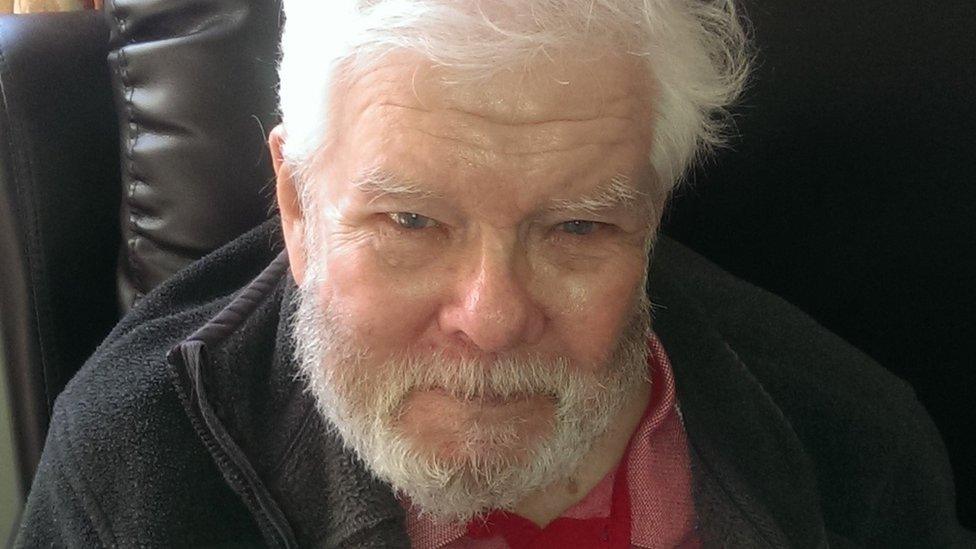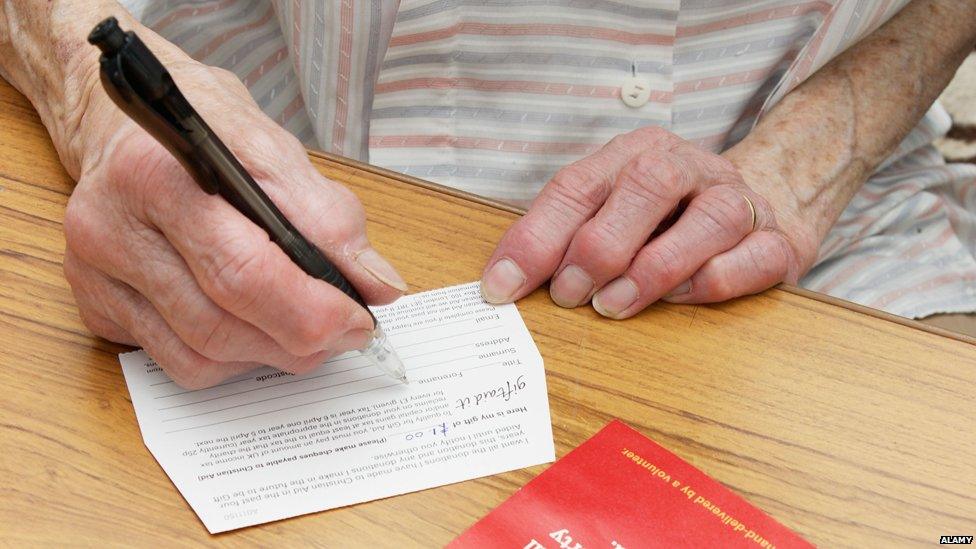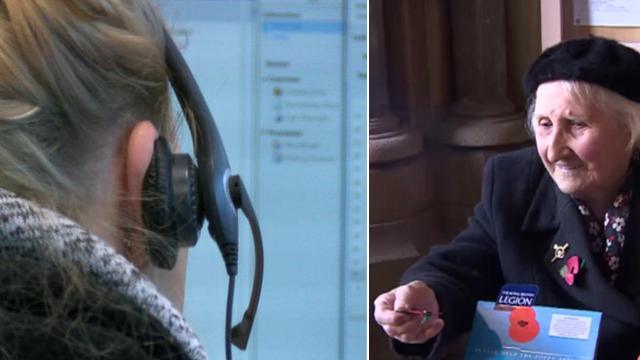Charities could face fundraising ban for breaking rules, review says
- Published
Christopher Rae claims his father's details were sold on by charities he supported - the Information Commissioner's Office is investigating
Charities could be banned from certain forms of fundraising, such as cold-calling or mailshots, if they break stricter rules proposed for the sector.
A government-commissioned review also recommended the creation of a new register to allow people to opt out of all charity contact., external
It follows concerns about aggressive fundraising tactics by some charities.
A BBC poll suggests more than half (52%) of those who regularly give to charities feel pressure to donate more.
The review also said the main fundraising regulator should be scrapped.
Stuart Etherington, of the National Council for Voluntary Organisations, who led the review, said the Fundraising Standards Board (FRSB) "really doesn't have the clout or the sanctions" to prevent bad practice.
'Carefully scrutinise'
When the heads of several major UK charities appeared before MPs earlier this month, they placed the bulk of the blame for improper fundraising tactics with outside agencies working on their behalf.
Sir Stuart said charities must "really carefully scrutinise what these agencies are doing", and must be prepared to accept a drop in the amount of money they raise - in the short term at least - in order to improve standards.
At present, the FRSB regulates standards set by fundraisers themselves, but the review found this was an "inappropriate arrangement".
Among the report's recommendations:
A new regulator, provisionally called the Fundraising Regulator, would take control
It would be funded by a levy on charities, and all charities spending more than £100,000 a year on fundraising - about 2,000 organisations - would be expected to contribute
It would report to a parliamentary committee
The creation of a new "fundraising preference service", overseen by the new regulator, would act as a reset button for those unhappy with the number of charities contacting them
Donors would give their preferences to one body and de-selected charities would be obliged to stop calling and mailing
Charities seriously or persistently breaching the rules would be named and shamed and could be forced to halt specific methods of fundraising until problems were resolved
Charities could then have to submit future fundraising plans to the regulator before being allowed to recommence their activities.
The regulator could also order compulsory training for fundraisers who have not adhered to the rules, for example by failing to follow correct procedure when dealing with vulnerable people.

BBC poll

The BBC Radio 4 survey found 47% of the 1,006 British adults questioned donate in a planned way, including direct debit and standing order.
Of those, it found:
The age group most likely to give regularly are over the age of 65 (61%)
Just under one in five (18%) say they feel a lot of pressure from the charity to increase donations
35% feel a little pressure to increase donations
48% who regularly give report feeling no pressure at all from the charity

Sir Stuart said Britain was a "tremendously generous country" but charities were not thinking hard enough about "what it was like to be on the receiving end of some of their fundraising methods".
Two other existing regulators, the Institute of Fundraising and Public Fundraising Association, would merge and continue to monitor aspects of on-street and door-to-door fundraising, but the new overarching regulator would ultimately be responsible for all forms of fundraising.
The FRSB said it agreed some reform was needed, but said "a revamped FRSB, properly resourced, would be the most viable and cost-effective way of moving forward".
Sold on
The issue was highlighted earlier this month when it was alleged that an 87-year-old dementia patient's personal details were sold or passed on by charities up to 200 times, ultimately ending up with scammers.

Samuel Rae's details were allegedly sold and passed on by charities
Samuel Rae's son, Christopher, said: "I think they [charities] have got a long way to go before they step back over the line we all thought they were behind. The charities need to do more farming and less hunting."
The Institute of Fundraising, which represents the sector, said its members wanted "to see a stronger and more robust system".
But Steve Bell, chief executive of homelessness charity Changing Lives, said the overhaul should go further, with a total ban on street collecting - or "chugging" - and doorstep cold calling.
- Published8 September 2015

- Published1 September 2015

- Published1 September 2015

- Published11 July 2015
